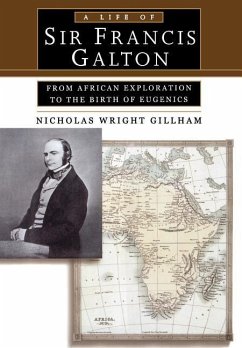To this end, he founded the eugenics movement which rapidly gained momentum early in the last century. After Galton's death, however, eugenics took a more sinister path, as in the United States, where by 1913 sixteen states had involuntary sterilization laws, and in Germany, where the goal of racial purity was pushed to its horrific limit in the "final solution." Galton himself, Gillham writes, would have been appalled by the extremes to which eugenics was carried. Here then is a vibrant biography of a remarkable scientist as well as a superb portrait of science in the Victorian era.
A cousin of Charles Darwin, Francis Galton was an African explorer, the meteorologist who discovered the anticyclone, a pioneer in using fingerprints to identify individuals, a statistician, and the founder of the eugenics movement. This text is a portrait of this Victorian polymath.
Hinweis: Dieser Artikel kann nur an eine deutsche Lieferadresse ausgeliefert werden.
A cousin of Charles Darwin, Francis Galton was an African explorer, the meteorologist who discovered the anticyclone, a pioneer in using fingerprints to identify individuals, a statistician, and the founder of the eugenics movement. This text is a portrait of this Victorian polymath.
Hinweis: Dieser Artikel kann nur an eine deutsche Lieferadresse ausgeliefert werden.








